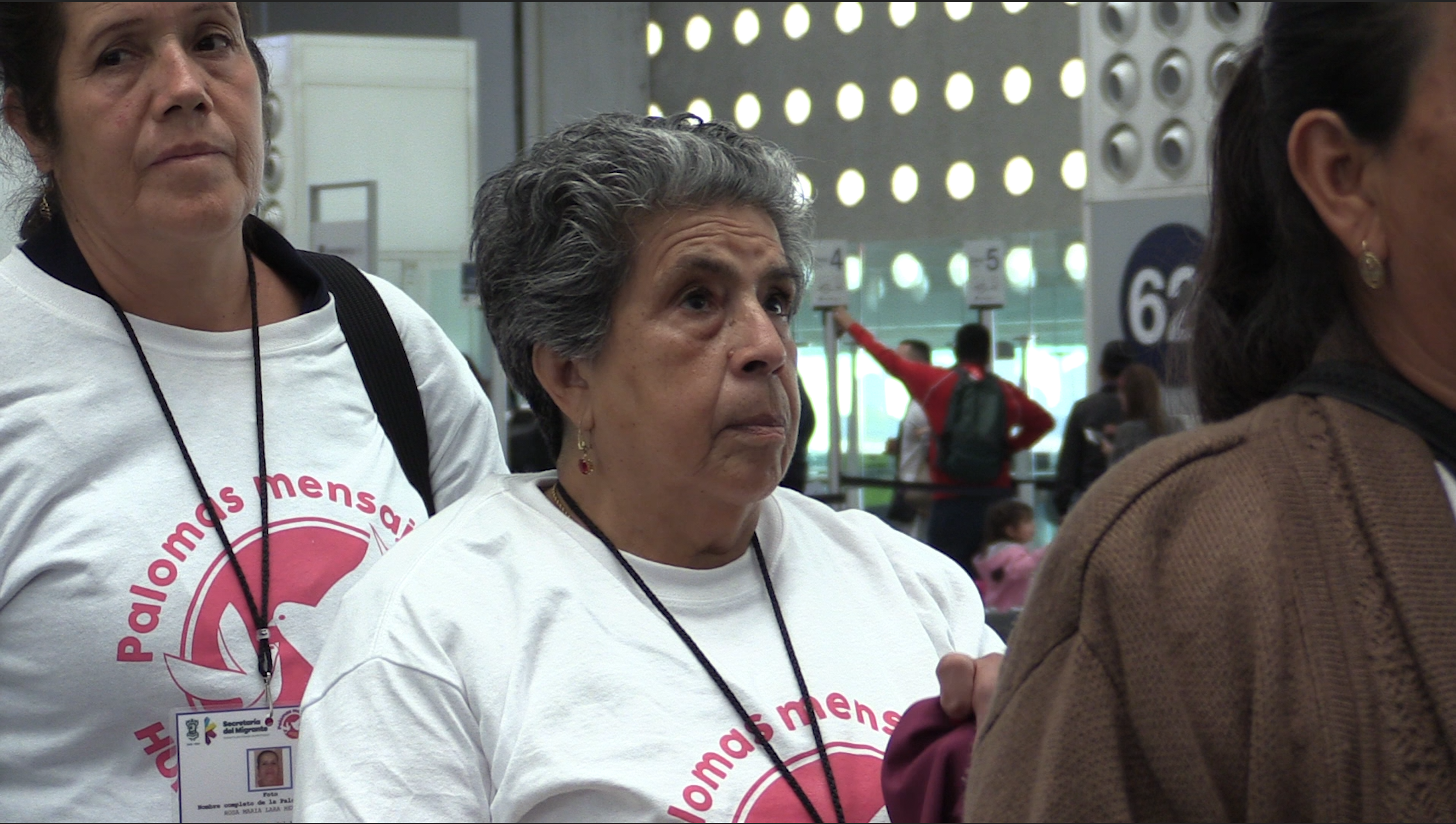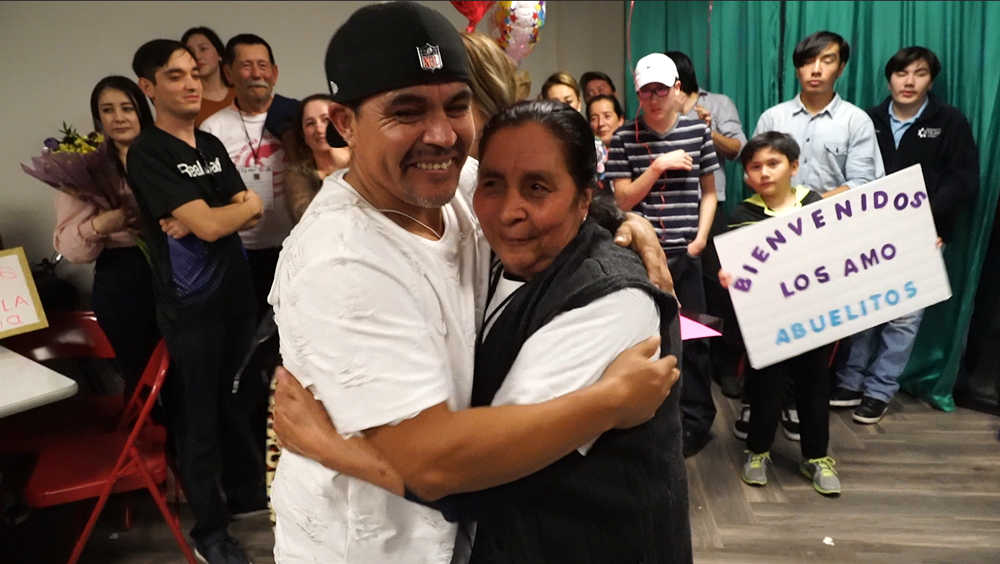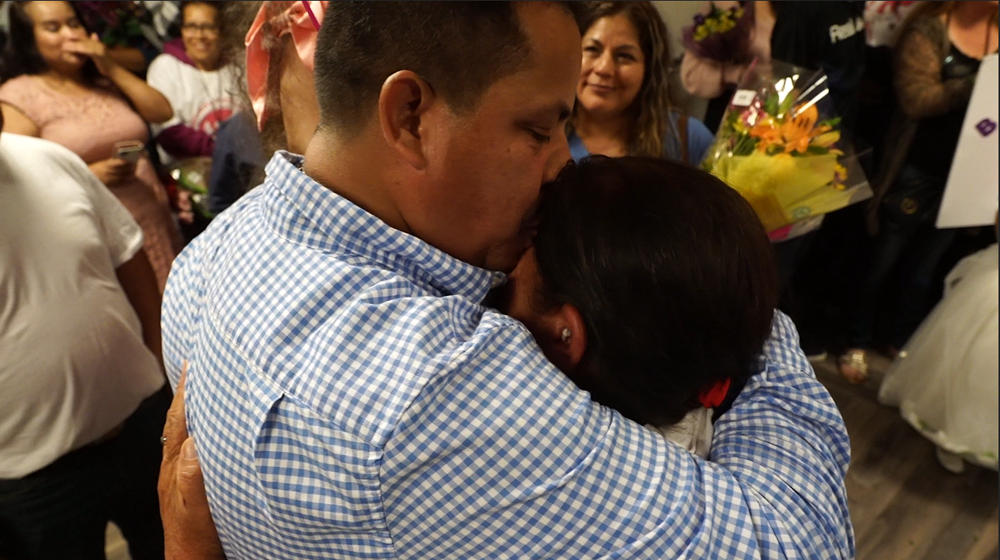03:23

For Imelda Gil, a mother from Mexico's troubled Michoacan State, the past two decades haven't been easy. Her daughter, Isabel, left her home to migrate north to the United States, and as an undocumented migrant in America, has never been able to return.
Imelda has felt the benefits. Her daughter sends her monthly stipends in dollars to support her – money, which goes a long way in Mexico – but the pain of separation can be too much at times.
"I talk to her every three days on the phone," she told CGTN, "but it's not the same."
Imelda's daughter, although undocumented, has established her life in the United States. She's had three children, young Americans who Imelda has never met.
But today, that's going to change. Through a joint program between Michoacan's state government, the U.S. State Department and local migrant aid organizations in the U.S., Imelda has attained what her daughter was never able to get – a U.S. tourist visa.
Now, standing at the boarding gate in Mexico City's international airport, she's on her way to visit her daughter after two decades apart.
"It's a dream come true," she said. "My daughter gets very worried about me, I think because she's concerned I'll die, and she won't be here with me when it happens. At least now I can see her again."

Imelda Gil hasn't seen her daughter for two decades. /CGTN Photo
Imelda Gil hasn't seen her daughter for two decades. /CGTN Photo
The Palmoas Mensajeras program – Messenger Pigeons in English – has helped to reunite more than 6,000 families separated by illegal immigration across the United States since it began in 2017.
Marco Ramirez is the local migrant aid representative in the town where Imelda will visit.
"It's a sad state of affairs," he told CGTN, "as an illegal immigrant in America, without that important personal contact, you begin to become more and more distant from your family."

More than 6,000 families have been reunited at events across the United States. /CGTN Photo
More than 6,000 families have been reunited at events across the United States. /CGTN Photo
"You stop calling so often, you stop sending money because real love is felt when you're with your loved ones. Never being able to go back to Mexico makes you harder as a person."
"This program is one of the greatest blessings undocumented migrants could possibly receive," he said.
Imelda is part of a larger group – 20 in total, who as they step onto U.S. soil for the first time, are awaited by their relatives at a welcoming party nearby.
One by one, the families are reunited. Tears of joy and cries of happiness show what it means to these families, as a hired Mariachi band plays alongside.

Undocumented immigrants in the United States very rarely return to Mexico of their own free will, which separates them from their families. /CGTN Photo
Undocumented immigrants in the United States very rarely return to Mexico of their own free will, which separates them from their families. /CGTN Photo
For Imelda and her daughter, it's an overwhelming experience. "It's incredible, fantastic, a dream come true," said Imelda.
This grandmother, meeting her grandchildren for the first time, will spend the next month with her undocumented family in America. Once the excitement of the reunion dies down, she will witness the daily realities of undocumented life in the United States.